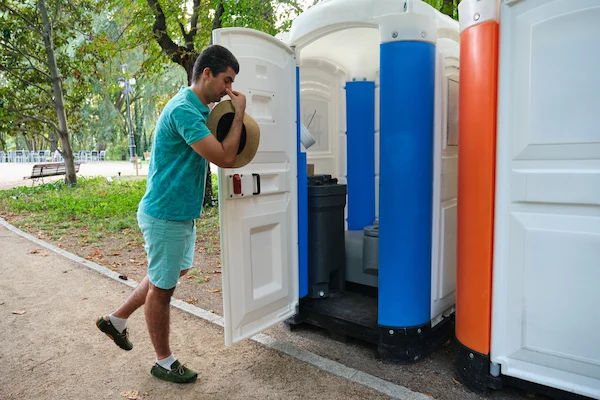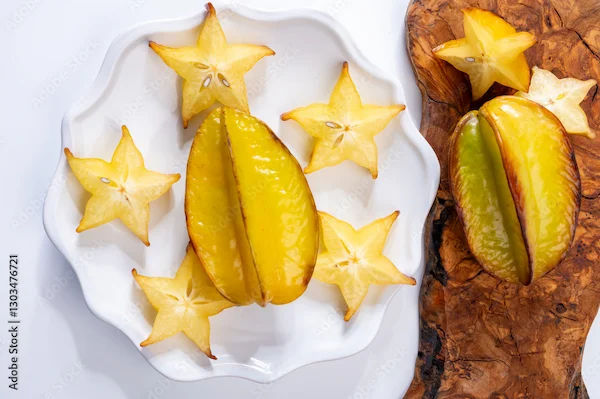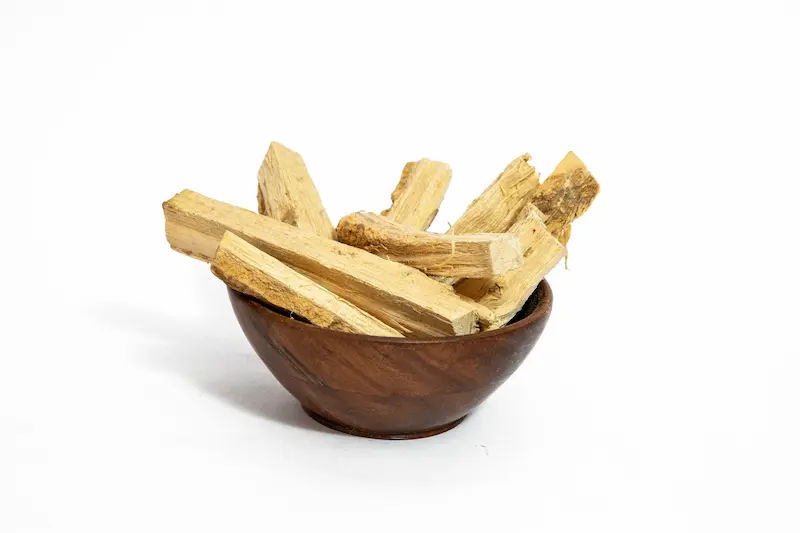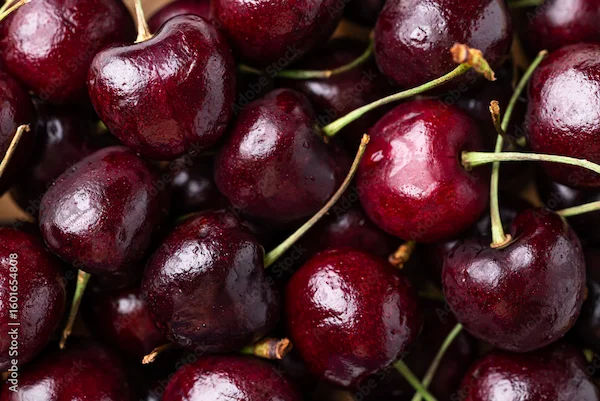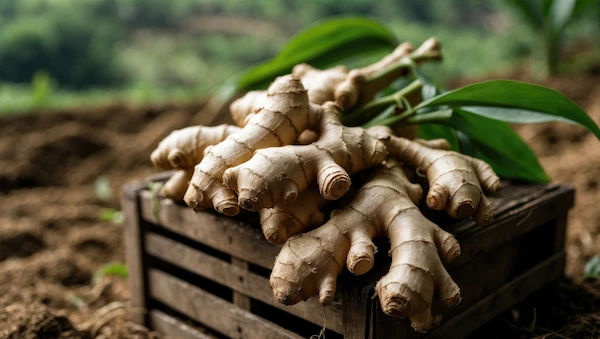Carrot and Beetroot Juice: Ayurvedic Uses, Benefits, and Side Effects
Explore carrot beetroot juice benefits, ayurvedic juice uses, detox drink facts, recipe, side effects, and safety tips backed by trusted health sources.

Written by Dr. Mohammed Kamran
Reviewed by Dr. Rohinipriyanka Pondugula MBBS
Last updated on 13th Jan, 2026
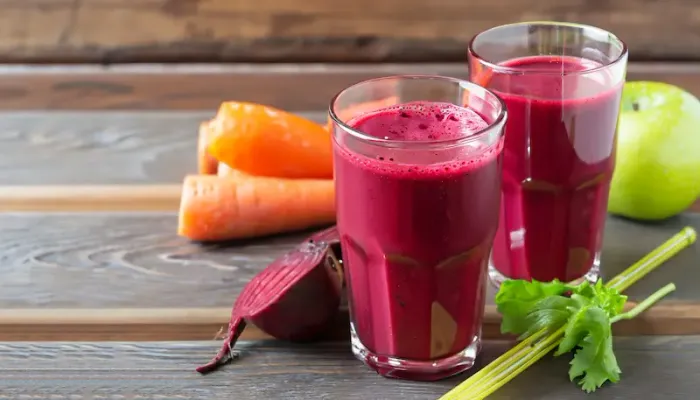
Introduction
If you’re curious about carrot beetroot juice benefits, you’re not alone. This colorful blend is often praised as a detox drink and ayurvedic juice that can fit into many healthy lifestyles. In this guide, we’ll look at what science says about its nutrients and potential benefits, how Ayurveda traditionally approaches it, who should be careful, and simple ways to enjoy it safely.
What’s in Carrot and Beetroot Juice?
Carrots and beetroots are nutrient-dense vegetables:
• Carrots: Known for beta-carotene (a precursor to vitamin A), plus potassium and antioxidants.
• Beetroots: Noted for natural nitrates (which may support healthy blood pressure), folate, potassium, and pigments called betalains.
Juicing concentrates vitamins and plant compounds but removes most fiber. If you want more fiber, use a high-pulp juice, a blender smoothie, or add back some pulp.
Science-Backed Carrot Beetroot Juice Benefits
May support healthy blood pressure (thanks to beetroot nitrates)
Beetroot contains dietary nitrates that the body can convert into nitric oxide, which helps relax blood vessels. Research suggests that nitrate-rich beetroot juice can modestly lower blood pressure in some people when combined with a healthy lifestyle. This does not replace prescribed medications. If you take blood pressure medicines, check with your healthcare provider before adding concentrated beetroot juice regularly.
Helps you eat more vegetables
Most people don’t get enough vegetables. Carrot and beetroot juice can be a simple way to increase your overall vegetable intake. Global health guidance encourages a diet rich in vegetables and fruits as part of a heart-healthy eating pattern.
Antioxidant support
• Carrots: Beta-carotene and other carotenoids act as antioxidants. Beta-carotene is converted to vitamin A as the body needs it, which supports normal immune function, skin health, and vision (especially helpful in preventing vitamin A deficiency).
• Beetroots: Betalains contribute antioxidant and anti-inflammatory activity in lab studies. While these are promising, human outcomes depend on overall diet and lifestyle.
Folate for overall health
Beetroot provides folate, a B vitamin important for cell growth and for people who may become or are pregnant. Carrots also add small amounts of multiple vitamins and minerals. Whole vegetables and a varied diet remain the best strategy to meet daily needs.
Possible exercise support
Nitrate-rich beetroot juice has been studied for endurance exercise. Some studies show small improvements in exercise efficiency or time to fatigue, especially when consumed a few hours before activity. Results vary by person and training status, and it’s not a substitute for conditioning, sleep, and nutrition basics.
“Detox Drink” Claims — What You Need to Know?
It’s common to see ayurvedic juice or detox drink claims around carrot-beet blends. Your body already has powerful detox systems—mainly the liver, kidneys, skin, and lungs. No single juice “flushes toxins” on its own. However, carrot and beetroot juice can support your body’s natural processes by:
• Improving hydration
• Adding antioxidants and beneficial plant compounds
• Helping you meet vegetable goals as part of an overall healthy eating pattern
In short: enjoy the juice as a nutrient-dense choice, but skip extreme “cleanse” promises.
Ayurvedic Perspective (Traditional Use)
In Ayurveda (a traditional system of health from India), plant-based foods like carrots and beets are often used to support digestion and balance the body through seasonal, fresh, and minimally processed foods. Common Ayurvedic-inspired combinations include adding ginger, lemon, or a pinch of black pepper to aid taste and digestion.
Important notes:
• Traditional Ayurvedic uses are part of dietary and lifestyle practices. They are not a replacement for medical care.
• Scientific evidence for specific Ayurvedic claims about this juice is limited. Use Ayurvedic guidance as culinary and lifestyle inspiration, while relying on modern medical advice for diagnosis and treatment.
How to Make Carrot and Beetroot Juice? (Simple Recipe)
Ingredients (1–2 servings)
• 2 medium carrots (washed, trimmed)
• 1 small beetroot (washed, peeled if desired)
• 1 small piece of ginger (optional)
• 1/2 lemon, squeezed (optional)
• Water as needed
Steps
1) Wash produce thoroughly under running water. Scrub the beet and carrots well.
2) Juice the carrots and beetroot (and ginger, if using). If blending, chop them, add a little water, blend until smooth, then strain or keep pulp for fiber.
3) Add lemon juice to taste. Serve chilled.
4) Refrigerate leftovers promptly in a sealed container and drink within 24–48 hours.
Tips
• For more fiber: keep some pulp or use a blender smoothie.
• For milder flavor: use a 2:1 carrot-to-beet ratio.
• For less sugar per serving: pour a small glass and sip slowly.
Consult Top Specialists
Who Should Be Careful? (Side Effects and Safety)
Blood pressure and medications
Because beetroot juice can modestly lower blood pressure, people on blood pressure medicines or those prone to low blood pressure should talk with a healthcare provider before having it regularly.
Kidney stone history (oxalates)
Beets are high in oxalates, which can contribute to certain types of kidney stones in people who are prone. If you have a history of calcium oxalate kidney stones, ask your clinician or dietitian how much beetroot (and beet juice) is appropriate for you.
Blood sugar and calories
Juice contains natural sugars without much fiber, which means it can raise blood sugar faster than whole vegetables. If you have diabetes or are watching your blood sugar, keep portions small, pair juice with a protein or high-fiber snack, or choose the whole-vegetable versions more often.
Beeturia and red stools
Beetroot can turn urine or stools pink/red (beeturia). This is usually harmless. If you see persistent blood-like discoloration and are unsure whether it’s from food, contact a clinician.
Carotenemia (from lots of carrots)
Very high intakes of beta-carotene-rich foods like carrots can cause a yellowish tint to the skin (carotenemia). It’s typically harmless and goes away when intake is reduced. It is different from vitamin A toxicity, which is rare from plant sources because the body regulates the conversion of beta-carotene to vitamin A.
Allergies and sensitivities
If you have known allergies to carrot or beetroot (or have experienced oral allergy symptoms with similar foods), avoid the juice and consult your healthcare provider.
Infants and young children
Juice is not recommended for infants under 12 months. For older children, choose whole fruits and vegetables or very small portions of 100% juice as part of a balanced diet, following your pediatrician’s guidance.
Food safety and storage
• Wash produce well to reduce the risk of contamination.
• Refrigerate juice promptly and consume within 24–48 hours.
• Homemade juices can grow bacteria if left at room temperature; keep them cold.
How Much and How Often?
• Enjoy in moderation. A small glass can be part of an overall healthy eating pattern.
• Consider alternating with whole-vegetable options to increase fiber intake.
• If you’re targeting exercise support from beetroot, some studies used concentrated beet juice shots or about 2–3 hours pre-workout; talk with a sports dietitian for personalized advice.
Smart Pairings and Variations
• For balance: Pair juice with a handful of nuts or a hard-boiled egg to slow blood sugar rise and increase satisfaction.
• For flavor: Add ginger, mint, or lemon.
• For fiber: Blend instead of juicing, or stir pulp back in.
• For variety: Mix in cucumber or celery for a lighter profile.
Bottom Line
Carrot and beetroot juice is a tasty, nutrient-dense option that can help you boost vegetable intake, support hydration, and add antioxidants. Science supports certain carrot beetroot juice benefits—especially beetroot’s dietary nitrates for healthy blood pressure and potential exercise support—when used as part of an overall healthy lifestyle. It’s not a magic detox drink, and it’s wise to be mindful if you have kidney stone risk, diabetes, low blood pressure, or food allergies. If in doubt, check with your healthcare provider or a registered dietitian.Consult Top Specialists
Consult Top Specialists

Dr. Pepsy Jose
Panchakarma Practitioner
14 Years • BAMS, MD Ayurveda (Panchakarma)
Bengaluru
AYURRHYTHM HOLISTIC CLINIC AND PANCHAKARMA THERAPY, Bengaluru

Dr. Anjan Das
Ayurveda Practitioner
8 Years • Ayurvedacharya ( B.A.M.S )
Dumdum
Vedhive Ayurveda Clinic, Dumdum

Dr. Rik Sadhukhan
Ayurveda Practitioner
8 Years • BAMS
Kolkata
Vedhive Ayurveda, Ballygunge, Kolkata

Dr. Shiv Prakash Singh
Ayurveda Practitioner
19 Years • BAMS
Kolkata
Vedhive Ayurveda College Street, Kolkata
Consult Top Specialists

Dr. Pepsy Jose
Panchakarma Practitioner
14 Years • BAMS, MD Ayurveda (Panchakarma)
Bengaluru
AYURRHYTHM HOLISTIC CLINIC AND PANCHAKARMA THERAPY, Bengaluru

Dr. Anjan Das
Ayurveda Practitioner
8 Years • Ayurvedacharya ( B.A.M.S )
Dumdum
Vedhive Ayurveda Clinic, Dumdum

Dr. Rik Sadhukhan
Ayurveda Practitioner
8 Years • BAMS
Kolkata
Vedhive Ayurveda, Ballygunge, Kolkata

Dr. Shiv Prakash Singh
Ayurveda Practitioner
19 Years • BAMS
Kolkata
Vedhive Ayurveda College Street, Kolkata
More articles from General Medical Consultation
Frequently Asked Questions
Q1: Is carrot and beetroot juice good for daily use?
For most healthy adults, a small glass can fit into a balanced diet. Emphasize whole vegetables for fiber, and check with your clinician if you have diabetes, kidney stones, or low blood pressure.
Q2: Can this juice lower blood pressure?
Beetroot’s natural nitrates can modestly lower blood pressure in some people. It’s not a replacement for prescribed treatment. If you take blood pressure medications, speak with your healthcare provider first.
Q3: Is carrot and beetroot juice a good detox drink?
Your liver and kidneys do the detoxing. This juice can support hydration and nutrient intake but won’t “flush toxins” by itself. Use it as a healthy addition to a balanced diet.
Q4: Can it help with weight loss?
Juice can be part of a weight-loss plan if portion sizes are small and overall calorie intake is balanced. Whole vegetables are often a better choice because fiber helps you feel full.
Q5: Is it safe for kids?
Avoid giving juice to infants under 12 months. For older children, limit portions of 100% juice and prioritize whole fruits and vegetables. Ask your pediatrician for personalized advice.
